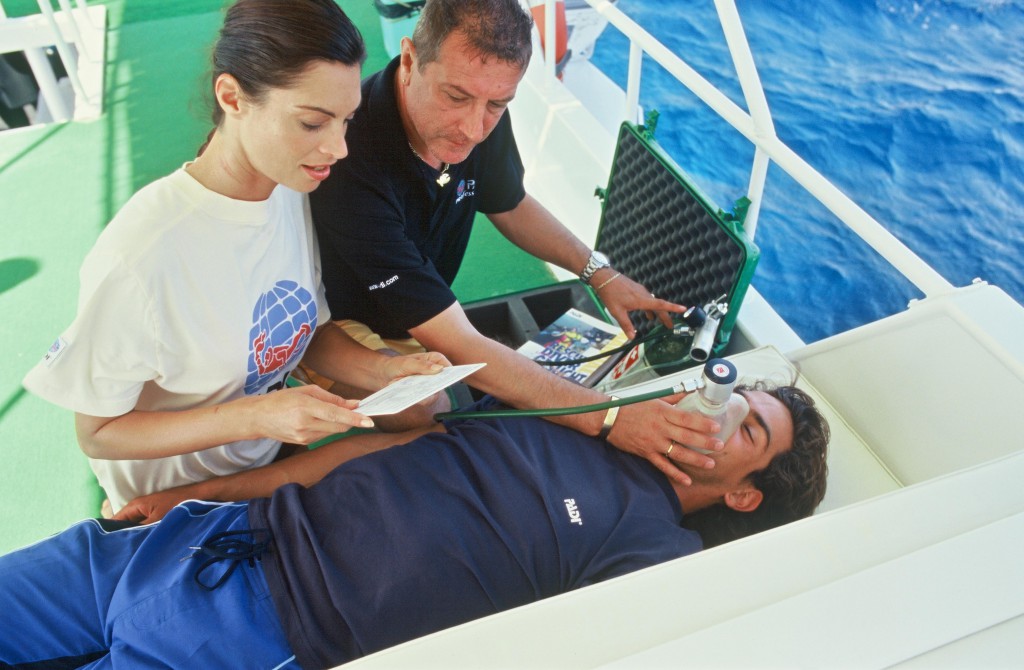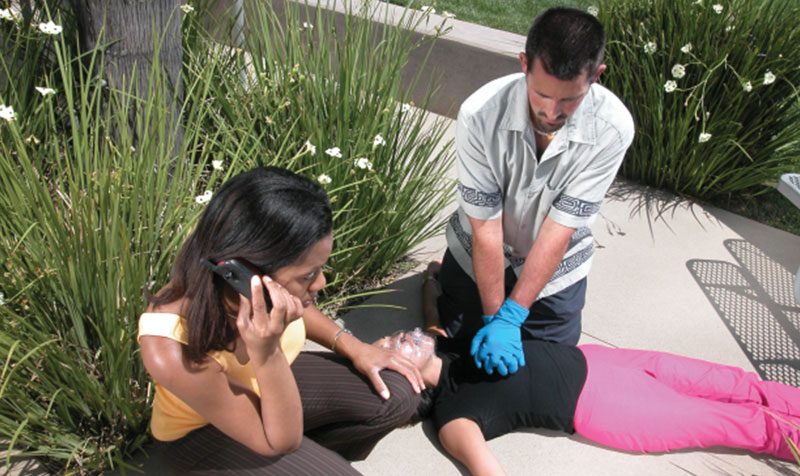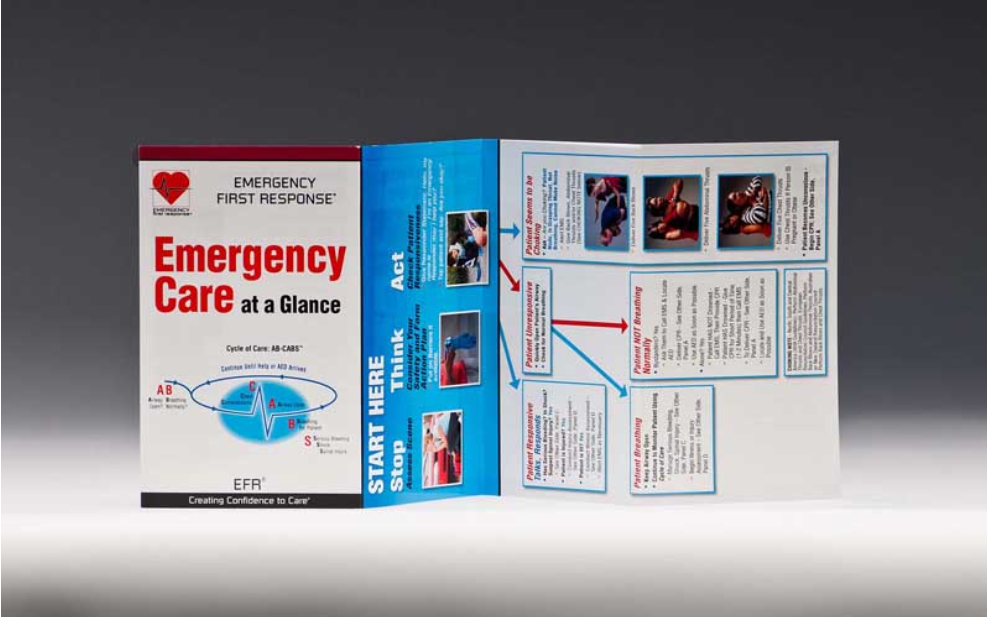The Value of First Aid training for anyone spending time at sea
by Michael Turner, Reefers and Wreckers Dive Center
After two days aboard a liveaboard while taking in the beautiful dive sites of the Red Sea, we were approaching the world famous dive site of the SS Thistlegorm. Little did we know of the events that were about to unfold…
Upon arrival we could see one of the boats already moored over the Thistlegorm was in difficulty, with smoke billowing from her engine room while the crews from her and the surrounding vessels were frantically trying to put the fire out. At one point I counted ten Zodiacs buzzing between the different liveaboards, one of which ran over and injured a crew member who was in the water. He sustained cuts to his leg but made a full recovery.
The guests from the affected vessel had already been evacuated to another nearby liveaboard. Their dive equipment, which included thousands of pounds worth of camera gear, was moved onto our liveaboard and stacked on the dive platform; this was no mean feat and required a great team effort from everyone on the boat.
After hours of manic kit-moving and passenger-ferrying, the fire was under control. I believe it was eventually the on-board CO2 system that extinguished the fire but the constant opening of the hatch to see if the fire had gone out didn’t help matters!
The crew did everything they could with the quite apparent minimal amount of training that they had received. They were fearless and cannot be praised enough! The crew and guests thought that everything was under control but it was at this point that things were to take a horrific turn for the worse…
As I looked over the side of the boat I noticed one of the crew who had just come out of the engine room, where he had been fighting the fire, having difficulty standing and breathing. It was at this point that I notified my wife, Sally Turner, a Respiratory Nurse. Sally administered oxygen via one of the portable units that we had borrowed from one of the other boats; we needed to get him to a stable environment. We persuaded the crew to not pass him over the side of the boat and to take him to our boat via the dive deck where we laid him on top of the towels that the rest of our guests had been busy collecting.
Sally was joined by Jo Bacon, a Dental Hygienist. It was then that the unthinkable happened and two more casualties came onto our boat, not as serious as the first; one was the captain suffering from burns to his feet and the other from smoke inhalation. It is probably also worth mentioning that help had not yet been called for even though it was at least half an hour since the first casualty. It took Sally to explain that he would die unless we got help.
Sally and Jo managed the situation and directed Sarah Drake, Gary McGuigan and myself to a positon where we would be most effective. Sarah calmed and stayed with one of the casualties while Gary and I looked after the captain and tried to patch together another oxygen system, which turned out to be brute strength/adrenaline and moving the 50 litre oxygen cylinders around the boat!
Gary’s greatest moment was persuading the now shocked and panicked crew to leave their injured friends in the hands of two strange blonde ladies. No mean feat in Egypt!
Sally then noticed the first victim was going into arrest and advised that we needed to move him into the Salon where they could administer CPR. At this point they were joined by a doctor who was a guest on one of the other boats. Sally and Jo performed CPR twice and managed to save the victims life. I have to say this is the first time I have seen this and I can only imagine how they felt both during and after the event. He was kept on oxygen until the Egyptian medical services arrived which was well over two hours after the events began to unfold.
All three casualties made a full recovery.
The events were not the fault of anyone; all the crew, staff and guests did everything within their training but it does make me wonder about the outcome if there had not been trained professionals on the boat!
Reefers and Wreckers are extremely proud of everyone involved; they are a credit to the Dive Centre.
Divers on liveaboard trips may travel to destinations which are several hours away from professional medical assistance. Complete an Emergency First Response course and you will gain confidence and skills in providing care should an emergency situation arise whilst travelling.
Contact your nearest Emergency First Response Center today to ask about course bookings.




